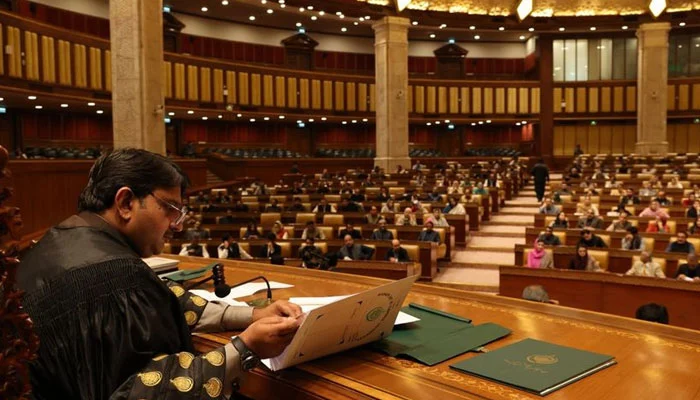The Defamation Bill 2024 has officially become law after being signed by Acting Governor Malik Muhammad Ahmad Khan, following the departure of Punjab Governor Salim Haider, who had expressed reservations about the bill.
The bill, which had been pending the governor’s assent after being passed by the Punjab Assembly, faced significant opposition from journalist organizations and the political opposition, who labeled it a “black law” intended to suppress freedom of expression.
Despite protests and objections, the bill was passed without incorporating any amendments proposed by the opposition, leading to heated debates, demonstrations, and the tearing of bill copies in the assembly. Journalist organizations had requested a delay to address their concerns, but this proposal was dismissed.
Representatives from the Joint Action Committee of media organizations met with Governor Haider to express their apprehensions, arguing that the bill sought to curb freedom of expression. Governor Haider assured them of thorough consultation before any decision but was abroad when the bill was signed by Acting Governor Malik Muhammad Ahmad Khan and returned to the Punjab Assembly. The law will come into effect following its publication in the official gazette.
In the meantime, the law has been challenged in the Lahore High Court. Petitioners, including journalist Jaffar Ahmed Yar and citizen Raja Riaz, argue that the law is unconstitutional and was hastily implemented without proper consultation with journalists and media organizations. The petition names the chief minister, the governor of Punjab, and the provincial government as respondents. It claims the new defamation law contradicts existing legal frameworks, specifically citing the Defamation Ordinance and the Defamation Act, which they argue render additional legislation unnecessary.
The petitioners assert that the Defamation Bill 2024 was introduced and passed in a hurried manner to control the press and stifle freedom of expression. They emphasize the lack of consultation with key stakeholders in the journalistic community, undermining the bill’s legitimacy and fairness. The plea requests that the Lahore High Court declare the defamation law null and void and seeks an immediate suspension of its implementation until a final judicial decision is made regarding its constitutionality and alignment with existing laws.
The Defamation Bill 2024
The Defamation Bill 2024 applies to print, electronic, and social media, addressing defamation cases involving false or untrue news. It extends to alleged fake news spread via YouTube and social media platforms. The bill encompasses defamation that harms personal lives and public places.
To handle defamation cases, tribunals will be established, with a mandate to resolve cases within six months. The bill also stipulates a compensation of Rs3 million. Additionally, cases against individuals holding constitutional positions will be heard by a high court bench.










